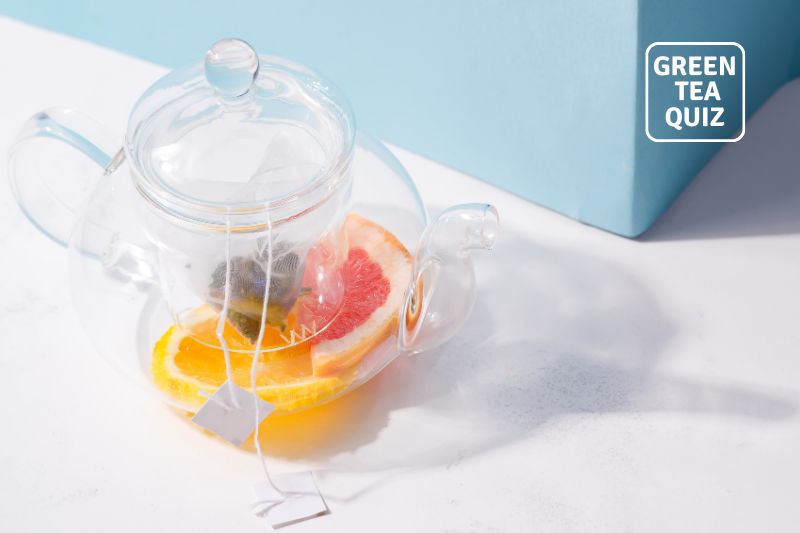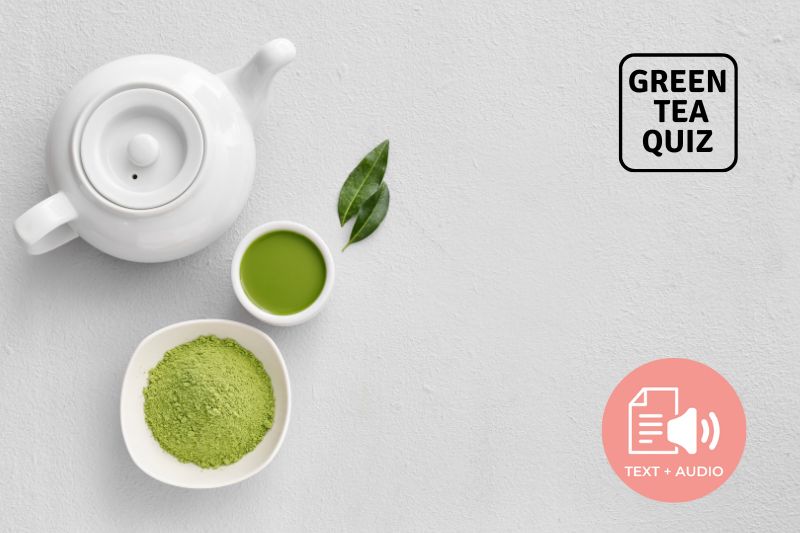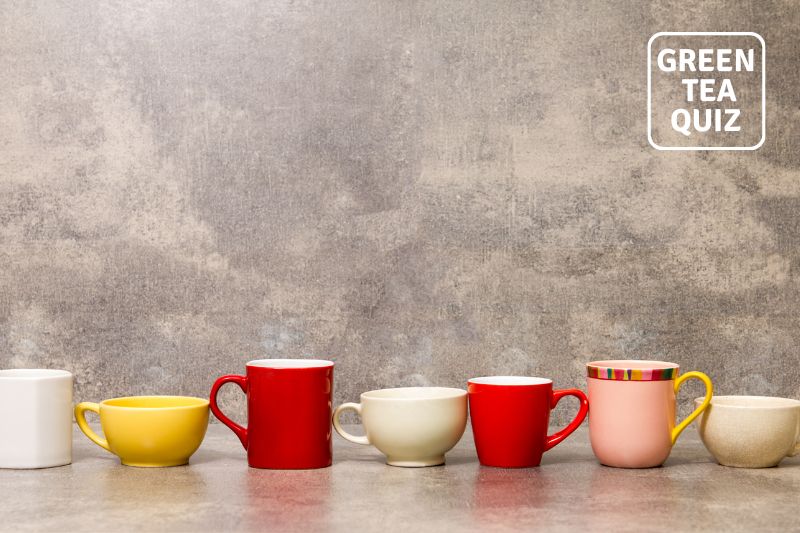Generally, healthcare professionals regard green tea as a healthy drink. Green tea has been touted by many in the medical field as one of, if not the healthiest, drinks a person can consume. Studies continue to embrace the positive attributes of green tea for overall health and wellness, including both the sencha (leaf) and matcha (powder) production and processing varieties. But what about pregnant women? Is green tea safe during pregnancy? We'll talk about that in today's post.
Is Green tea Safe During Pregnancy?
This is an important question to ask. After all, what you ingest will eventually transfer to your baby, good or bad, and will affect your baby’s growth and development during pregnancy.
There are mainly two conflicting statements that you might have heard:
Statement number 1:
“The health benefits of green tea are so numerous and wide-ranging that it's hard to think that it could be detrimental to anyone, including a developing fetus.”
VERSUS
Statement number 2:
“Some researchers suggest that green tea does have a negative impact during pregnancy.”
So, what’s the truth? Let’s dive into both statements, one by one, and see how much truth they hold.

Statement #1
Let’s talk about statement number 1:
First, let's note the importance of fluids during pregnancy.
When pregnant, water is an essential component that makes up your baby’s placenta and amniotic fluid. Water and fluids carry vital nutrients for your developing baby. Water is also good for the mother because it helps prevent symptoms during pregnancy. These include constipation, bladder infections, urinary tract infections, swelling, and hemorrhoids.
Must-Know Information: The Institute of Medicine recommends that pregnant women drink about ten cups of fluid per day. The Mayo Clinic includes green tea as a recommended source of healthy daily fluid intake.
Green tea contains the highest levels of antioxidants found in any type of tea.
This is thanks to the minimal processing of the leaves, which maintains their high level of polyphenols. Polyphenols are a natural chemical found in green tea that is believed to be the source of its incredibly high levels of anti-inflammatory and anti-carcinogenic power.
60 to 80% of green tea’s polyphenol content is antioxidants and catechins, which are believed to prevent cell damage through the destruction of free radicals that can destroy cell DNA.
The Benefits of Green Tea During Pregnancy
Below is a non-exhaustive list of the benefits of green tea for pregnant women:
- Incredible Antioxidant: Many people prefer green tea due to the presence of antioxidant ingredients. Tea leaves are enriched with antioxidants, which help fight the oxidants in your bloodstream.
- Free Radical Destruction: Key ingredients such as polyphenols, catechins, and EGCG present in tea leaves eliminate all unnecessary radicals present in your body and prevent early aging.
- Lowers Cholesterol: Green tea lowers blood cholesterol levels, which is helpful as high cholesterol levels result in many heart-related diseases.
- Protects against cardiovascular disease: It helps reduce the chances of cardiovascular diseases. Tea nutrients make your veins relax and prevent the clotting of blood. Clotting is the main reason for heart attacks, and green tea helps reduce the risk.
- Protects against stroke risk: frequent green tea drinks have about 31% lower odds of having a stroke and related illness.
- Protects against high blood pressure: Nutrients present in tea help restore the lining of blood vessels and make them stronger to withstand high blood pressure. It also makes them hydrated and relaxed, so blood flows freely.
- Protects against Type-2 diabetes: Green tea has a blood sugar-lowering effect when consumed daily after a meal. Drinking caffeinated green tea lowers the probability of developing type 2 diabetes. Moreover, it reduces the risk of high insulin and fat storage in the blood.
- Protects against certain cancers: Green tea protects against a certain type of cancer cell. It is said that frequent drinkers are less likely to develop cancer.
- Reduces inflammation and swelling: Green tea contains EGCG, the most powerful type of catechin, which helps with any kind of inflammation and swelling on any part of the body. It is recommended for pregnant women if they face similar issues.
- Reduces inflammatory skin disease: Green tea is helpful for internal organs and has a significant effect on your skin. You can apply it to your skin to reduce rashes, sunburn, and dark circles. It keeps your skin hydrated and reduces any inflammatory diseases. (Learn more about green tea and skin health in this post.)
- Supports the immune system: Green tea has an immune-boosting effect due to potent plant oxidants in its leaves.
- Supports brain function and cognition: Green tea improves brain cells and their function. The nutrients present in tea help restore cells and prevent early-aging diseases. The caffeine present in the tea improves cognition, mood, alertness, etc. This post talks about foods that help stimulate brain function.
- Anti-anxiety effect: Green tea has L-theanine and caffeine, which affect your neurotransmitters. It has an anti-anxiety effect and calms your nerves. Because the low level compared to coffee gives you just the right amount of buzz and energy.
- Supports weight loss: Green tea is popular for increasing metabolism and regulating weight. It burns extra-hard stored fat in your body and gives you energy. Tea contains a polyphenol component that helps oxidize fats and carbohydrates and turns them into energy to get you through the day.
The health benefits of green tea are just too incredible to ignore for any mother, especially since all of the benefits the mother receives will transfer to the baby through the nutrient transfer.
Statement #2
Now, let's discuss the second statement about side effects:
The Main Thing to Know: Caffeine is the Potentially Dangerous Ingredient
So, how can something so good be reported as detrimental to the developing fetus? The offender appears to be the caffeine contained in green tea. Most pregnant women have been warned by their doctor to limit their overall caffeine intake, and there are multiple reasons for this warning.
(Visit this post next for everything you need to know about green tea and caffeine.)

What Does Excess Caffeine do to a Pregnant Woman's Body?
Caffeine is a stimulant that increases blood pressure and heart rate, makes it difficult to sleep, and affects pregnant women’s overall health and wellness. To recap, it has also been noted that heartburn and indigestion are consequences of too much caffeine.
Caffeine is a natural diuretic. Too much can cause excessive urination, leading to dehydration and low amniotic fluid. Dehydration has also been linked to premature labor and miscarriages.
Why Too Much Caffeine During Pregnancy is Harmful
Curious? Keep reading!
Caffeine can be passed through the placenta and affect the baby when it enters the bloodstream. Babies cannot metabolize caffeine as quickly as adults. Research also suggests that babies could experience caffeine withdrawal symptoms when caffeine is withheld.
Some additional concerns for the baby include:
- Premature birth
- Low birth weight
- Caffeine withdrawal
Another Side Effect of Green Tea: Impedes Folic Acid Absorption and Iron Intake
It’s also worth mentioning that there has been a report that green tea could prevent pregnant women from effectively absorbing folic acid. Folic acid, especially during the first trimester of pregnancy, is important to the developing fetus.
However, it is important to note that the same report, identifying possible neural tube defects from a lack of folic acid, also reveals that such an adverse deficiency would require drinking nonsensical quantities of green tea daily.
It has been theorized that tea of any type, including green tea, will constrict the body’s ability to absorb iron from some foods. Iron is a necessary nutrient for the baby and is required to oxygenate the developing fetus's blood. The responsive recommendation here is that you not drink green tea with your meal.

The conclusion to bring both earlier claims to the middle ground:
Medical Research Statement: Green Tea in Moderation is Not Harmful to Baby
Most medical research lends itself to the conclusion that drinking green tea in moderation has no harmful side effects for the mother or the developing fetus.
For example, the Mayo Clinic and other credible medical sources DO recommend that your ingestion of caffeine be limited to 200 milligrams each day. And since green tea contains the lowest level of caffeine that can be found among any type of non-herbal tea, the caffeine level in one cup is approximately 24 to 45 mg for sencha and 35 to 70 mg for matcha.
Compared to the caffeine level in one cup of coffee, this is approximately 95 to 200 mg. So, since green tea does not contain the same high levels of caffeine as coffee, you can drink it in moderation with confidence.
Based on research done by medical professionals, it appears that drinking green tea in moderation is safe for you and your baby. Just be smart about how much you consume!
The prevailing medical support for drinking green tea during pregnancy is a benefit to the risk assessment that you must make with your physician.
As always, if you have questions about the consumption of green tea during pregnancy, you should consult your doctor.
Which Type of Green Tea is Safe During Pregnancy?
There are three kinds of green tea, and all are safe to consume during pregnancy. However, their quantities differ. As you know, pregnant women should limit their caffeine intake to 200mg strictly to avoid certain health issues during pregnancy. That’s why you should know what kind of green tea you are consuming to stay on the safe side.
Picking the right kind of green tea is the first step to being safe, and brewing comes next.
Organic green tea is extracted from plants grown using natural methods without the use of synthetic pesticides or fertilizers. It is a certified and standard tea enriched with wholesome ingredients.
Decaf green tea has relatively lower caffeine levels than standard green tea and is therefore named decaf. You can have multiple cups of this tea in a day because it has less caffeine.
Matcha green tea is made from the finest tea leaves, rich in antioxidants. For the preparation, only the leaves are used, and the stem and veins are removed. The leaves are then ground into a fine, bright powder. By consuming whole powdered green tea, you get more nutrients, and therefore it is advised only to have one cup per day during pregnancy.
Want to Drink Green Tea During Pregnancy? Follow These Helpful Tips
Keep in mind the following tips whenever you like to have green tea: These will be helpful for you in maintaining a balanced diet during pregnancy.
- Green tea contains the lowest amount of tannins. But they can be harmful to pregnant women if consumed on an empty stomach. Drinking green tea on an empty stomach can cause acidity, nausea, constipation, stomach irritation, etc.
- Do not drink green tea with meals or right after finishing. It dilutes the gastric fluid present in your stomach and hinders iron absorption from food. Therefore, this leads to less iron consumption and deficiency.
- Drink green tea at least one hour after finishing your meal. Some also recommend having a two-hour gap between your meal and green tea. Drinking green tea after a decent gap will give you benefits, break down any extra fat, and give you energy.
- It is advised to have a maximum of two cups of green tea per day. By increasing the number of cups, you risk high caffeine levels in your blood.
- Caffeine can affect your sleep schedule. Don’t drink green tea in the late afternoon or before bedtime. The best time to drink green tea is after an hour's lunch.
- Use filtered water when brewing green tea. Do not use tap water or mineral water.
- Buy loose-leaf green tea from a reputable brand. These are whole, rich in nutrients, and eco-friendly. By buying a box of loose-leaf tea, you reduce the non-recyclable waste of packaging.
Get Free Bonus Content
If you’ve ever thought green tea has an "acquired taste" or is "too bitter" to enjoy, we’re here to change your mind! We want everyone to experience the health benefits of green tea and show you that this can be an amazing, refreshing, and delicious drink when made correctly.
With just a few tips on brewing this powerful leaf, we can change your mind about the taste and enjoyment of drinking green tea.
Don’t miss out on all of the health benefits of tea:
- Improving health
- Increasing brain function
- Regulating weight
- Lowering your risk of cancer
- Reducing your risk of heart disease
- Lowering your risk of diabetes
We know that you will love these tips for brewing tea and getting the most flavor and elegance out of every cup. Sign up for the free Japanese Green Tea Club and get this great, informative manual on brewing green tea. In it, you'll learn what it is that makes it one of the most popular beverages in the world!
Sign up for free at Green Tea Club to get the two books for free.
Did you learn alot from this post about whether green tea during pregnancy is safe? Here are three more posts to read next:
- THE HISTORY OF JAPANESE GREEN TEA
- DOES GREEN TEA MAKE YOU DEHYDRATED?
- GREEN TEA BUBBLE TEA - WHAT IS IT? WHY IS IT TRENDING? & HOW YOU CAN MAKE IT AT HOME
This post was first published in 2019, but it was updated in 2021 just for you.
Get Free Bonus Books

Sign up for free to the Green Tea Club to get advice and exclusive articles about how to choose Japanese Tea, and tips, tricks, and recipes for enjoying Japanese tea.
About the author
Kei Nishida
Author, CEO Dream of Japan
Certification: PMP, BS in Computer Science
Education: Western Washington University
Kei Nishida is a passionate Japanese green tea connoisseur, writer, and the founder and CEO of Japanese Green Tea Co., a Dream of Japan Company.
Driven by a deep desire to share the rich flavors of his homeland, he established the only company that sources premium tea grown in nutrient-rich sugarcane soil—earning multiple Global Tea Champion awards.
Expanding his mission of introducing Japan’s finest to the world, Kei pioneered the launch of the first-ever Sumiyaki charcoal-roasted coffee through Japanese Coffee Co. He also brought the artistry of traditional Japanese craftsmanship to the global market by making katana-style handmade knives—crafted by a renowned katana maker—available outside Japan for the first time through Japanese Knife Co.
Kei’s journey continues as he uncovers and shares Japan’s hidden treasures with the world.
Learn more about Kei








